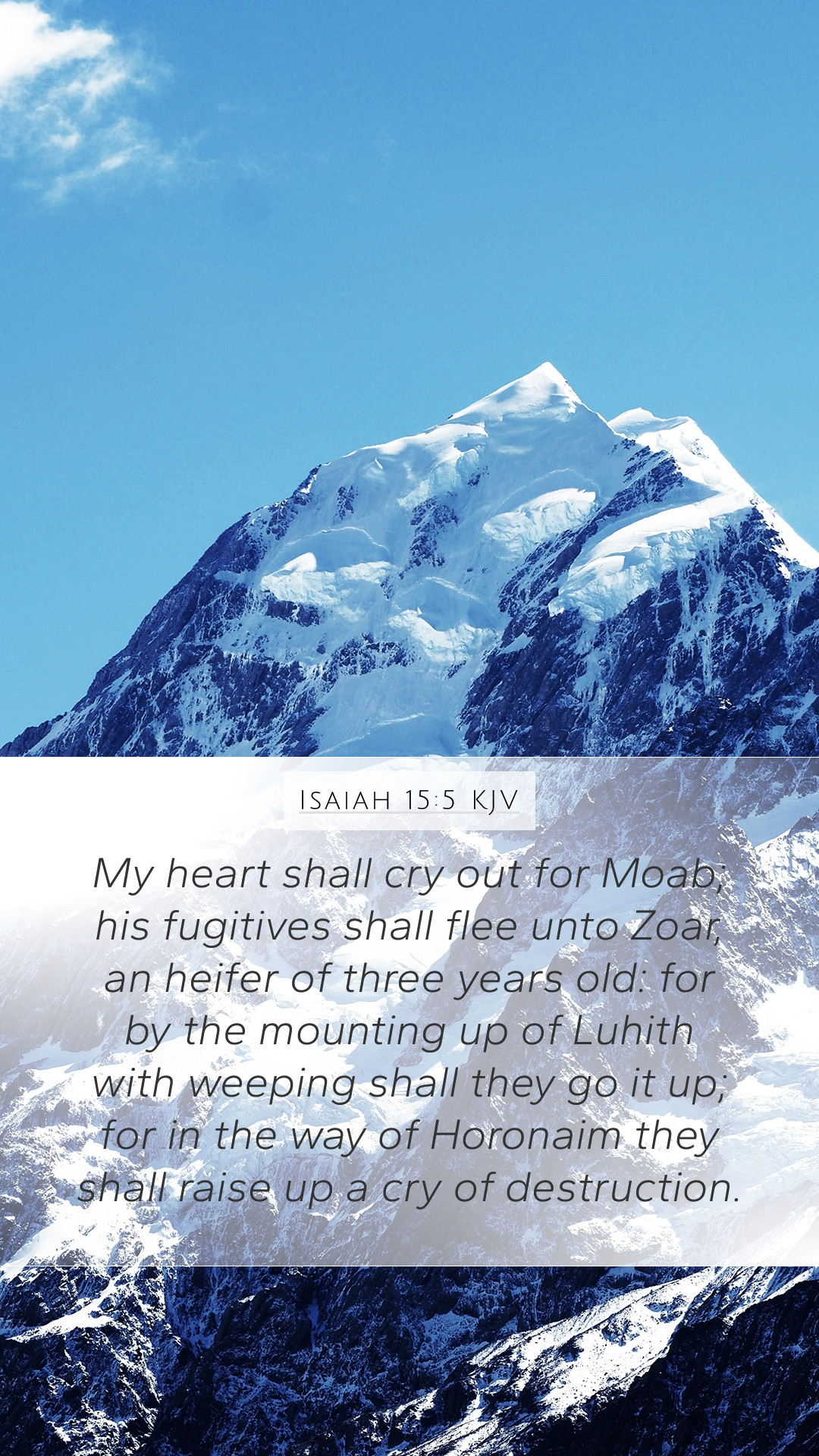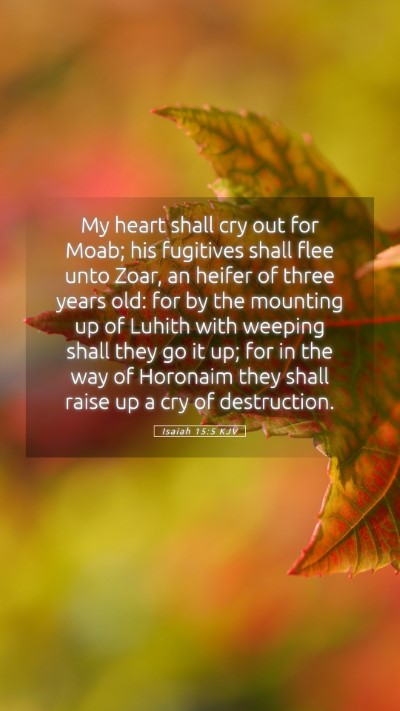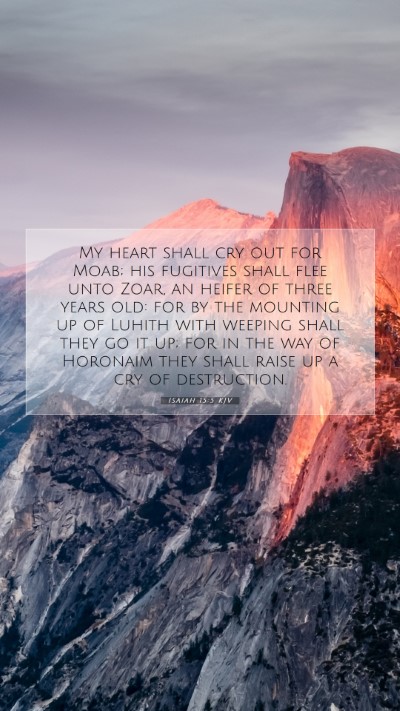Understanding Isaiah 15:5
Isaiah 15:5 offers a profound insight into the themes of mourning and destruction experienced by the Moabites. The verse highlights the emotional and spiritual despair faced by a nation overwhelmed by calamity. Below, we delve into the meanings, interpretations, and implications of this verse based on respected public domain commentaries.
Verse Context and Breakdown
Isaiah 15:5 states:
"My heart cries out for Moab; her fugitives flee to Zoar, to Eglath Shelishiyah; for at the ascent of Luhith they go up weeping; on the road to Horonaim they raise a cry of destruction." (Isaiah 15:5, ESV)
This verse is situated within a prophecy against Moab, wherein the prophet Isaiah expresses deep sorrow for the impending judgment upon the region. The journey of the fugitives, their weeping, and cries of destruction represent not just physical fleeing, but a profound emotional and spiritual turmoil as well.
Summary of Insights from Commentaries
-
Matthew Henry's Commentary:
Matthew Henry emphasizes the emotional weight of the verse, noting that it reflects not only the physical destruction of Moab but also God’s compassionate heart. Henry illustrates how God laments the hardship that His creation endures, reinforcing the human experience of suffering and the divine's response.
-
Albert Barnes' Notes:
Albert Barnes offers insights into the geographical references mentioned in the verse. He explains that Zoar and Eglath Shelishiyah were places of refuge indicating that in times of disaster, people seek safety. Barnes highlights that the flight of the Moabites symbolizes a deeper national despair, pointing to their spiritual degradation and the foreshadowed judgment they face due to their transgressions.
-
Adam Clarke’s Commentary:
Adam Clarke provides a historical perspective on the relationship between Israel and Moab, elucidating the reasons behind this prophetic lamentation. He explains that Moab's challenges could be viewed as consequences of its idolatry and resistance to God's will, suggesting that Clarke sees this verse as a call to repentance and an acknowledgement of divine justice.
Theological Themes
This verse encapsulates several theological themes:
-
Divine Compassion:
The prophet's grief signifies God's compassion, serving as a reminder that although judgment comes, God does not take pleasure in the suffering of His people.
-
Judgment and Justice:
Isaiah communicates God’s inevitability of justice, demonstrating that spiritual and moral decay leads to national ruin.
-
Human Suffering:
This verse evokes the emotional resonance of human suffering, showing how calamity affects not just individuals but entire communities.
Practical Applications
For those engaging in Bible study or online Bible study, the applications of Isaiah 15:5 can be profound:
-
Reflection on Personal Struggles:
Consider how the historical suffering of the Moabites parallels personal or communal struggles today.
-
Encouragement to Reach Out:
This verse serves as a reminder to support those in distress, recognizing that everyone undergoes difficult times.
-
Call to Repentance:
Reflect on the responsibilities individuals and communities share in addressing spiritual shortcomings.
Cross References
This verse can be cross-referenced with:
- Jeremiah 48: A further exploration of the judgment against Moab.
- Ezekiel 25:8-11: Prophecies concerning the fate of Moab.
- Psalm 60:8-10: A lament that reflects similar themes of distress and reliance on God.
Conclusion
Isaiah 15:5 serves as an important reminder of the consequences of sin, the necessity of compassion, and the depth of human suffering. Bible verse interpretations such as these encourage deeper Bible study insights and an understanding of the Biblical exegesis that can lead to profound personal applications.
In your journey of exploring the meaning of Bible verses, let Isaiah's lamentation remind you of God's heart for those who suffer and the hope that comes from recognizing and repenting of collective and individual wrongs.


